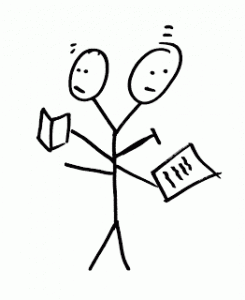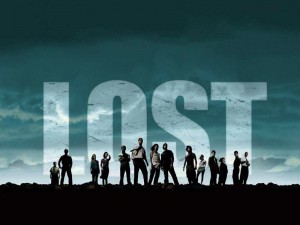George Landow first coined the term the wreader in relation to hypertext fiction, suggesting that readers in this context are as much producers as consumers of the texts. I want to borrow this term to explore the extent to which readers who go online to discuss their reading on forums and discussion groups are by necessity ‘wreaders’ insofar as most of the platforms available to them demand that they process their thoughts and responses in writing. But I also want to explore whether the term may be useful for referring to the activities of readers who go on to write stories themselves, and to read, evaluate and archive stories written by others, often all within the same online space.
Why Write About Reading?
When Julia and I first started researching online readers
(http://www.researchingreadersonline.com), we wondered whether writing about reading could be liberating for some. With memories of reluctant participants and embarrassing silences still fresh in our minds from our experiences as both teachers and students of literature (!), it seemed plausible that the anonymity and informality of these online spaces might help foster debate and discussion. But we also wondered whether the ability to edit posts, to take time to reflect on what you want to say might also be part of the appeal of online discussion groups. When we asked the participants of our online survey if they preferred to discuss their ideas online rather than with friends and family, around 60% cited writing rather than speaking their thoughts as the main reason for this preference. One participant talked of ‘taking time to think about comments/discussions before joining in’, highlighting the importance of being able to choose and control how and when to participate, as well as a desire to be heard uninterrupted. In both the online survey and the focus groups, some respondents saw online discussions as ‘second best’, lacking in the ‘energy’ that face to face communication can offer. But from our admittedly limited sample (248), there is some scope to suggest that writing about reading may offer participants a subtly different experience which may be positive and even empowering.
In previous research on online fan communities (Thomas, 2010), I explored why it is that ‘writing it all down’ remains the main means for fans to connect with their favoured fictional universes and characters, even with film and television narratives. From my analysis of fan sites and interviews with fanfic authors, I found that writing offered fans a means of teasing out aspects of the plot or characterisation, as well as extending their engagement with the show or film. Beyond that, fans saw ‘writing it all down’ as a therapeutic exercise, allowing them to work through their own anxieties and problems. Perhaps there is scope here to explore how far this idea of writing as a kind of therapy and self-exploration might extend to literary reading communities.
Forms of Wreading
We’re not talking about people writing essays online here. Any glance at most discussion threads will they are often game-like, initiating polls or quizzes about the fictional worlds under discussion. Posts are typically short, focused on responding to what has already been said rather than setting out a fully-fledged ‘reading’ of the text or author in question. Many linguistic studies of online communication have shown how ‘speech-like’ the writing is, making it just as likely that unequal power relations, hierarchies etc will emerge in the turn taking mechanisms of online interactions as those that take place face to face. Nevertheless, discussions on online forums are recorded, archived and curated, meaning that topics may be revived at any point, and also meaning that they are readily available for analysis – by other users, but also by academics and others interested in the activities and behaviours of those taking part.
So is there anything new here?
Historical studies of the reading experience (for example RED, http://www.open.ac.uk/Arts/RED) have included written materials, for example marginalia and letters. In the digital era, not only do we have the archived discussions of online forums and book clubs, but we also have digitised records of readers’ notes and comments via Amazon’s Highlights and Public Notes pages. What our research projects are setting out to explore is the best way to try to sift through this vast written data on reading and readers and to try to make sense of the ways in which readers engage with one another and with their reading through their online writing.
Perhaps one of the things that is distinctive about online wreading is the sense of being part of a ‘live’ community. Many of the respondents to our survey said they were members of several online communities, and had been for many years, and while some participants self-identified as lurkers, most said that they contributed occasionally or frequently to discussions. What this suggests is that as well as sharing their thoughts about their reading with others, many online wreaders also feel a strong sense of ownership of and responsibility towards the communities in which they participate.
For some readers, comment and discussion isn’t enough. Of the 248 participants in our survey, 24% of respondents said they had written fanfiction. Some of the online discussion forums we looked at had their own spaces for fanfiction (for example ‘Bits of Ivory’ on www.republicofpemberley.com), allowing readers to explore their engagement with the fictional world through creative writing, sometimes at great length. However, other groups consciously distance themselves from ‘fannish’ behaviour and align themselves more closely either with, or in opposition to, academic models of reading. Therefore it would be dangerous to generalise about these online spaces or the kinds of writing that takes place within them, or to pronounce that any of these activities taken on their own are new. Nevertheless, I do want to suggest that it is pertinent to focus on the fact that these readers are writing about their reading in their millions, and to ask whether perhaps we need to develop new terms to try to capture the range of activities and practices in which they take part.
